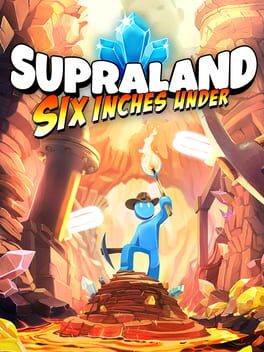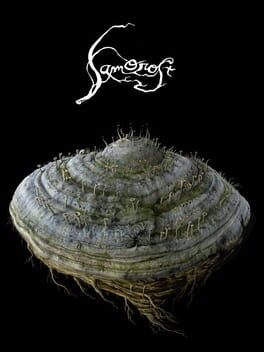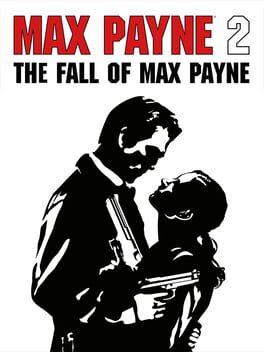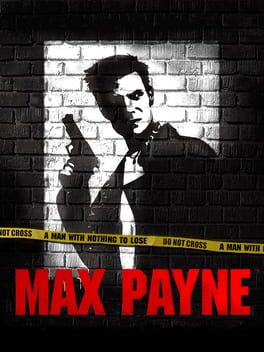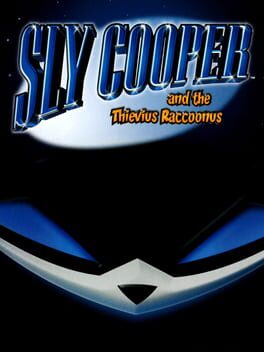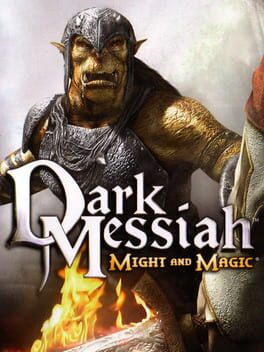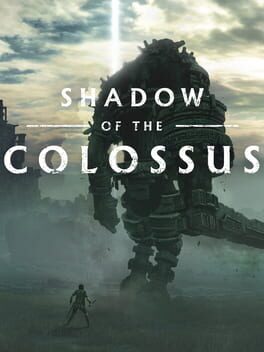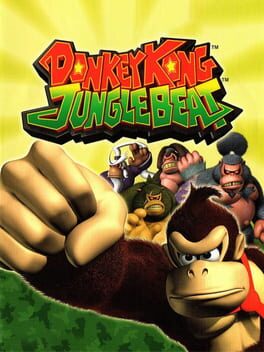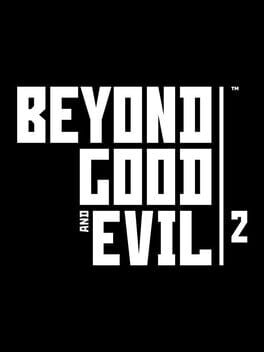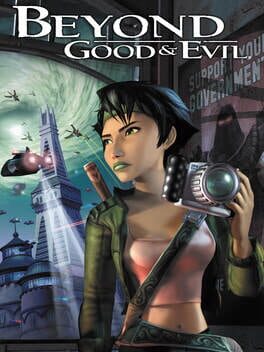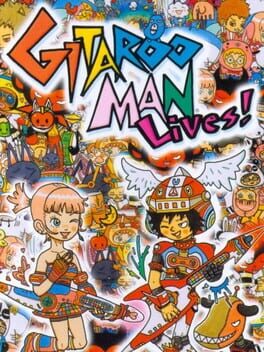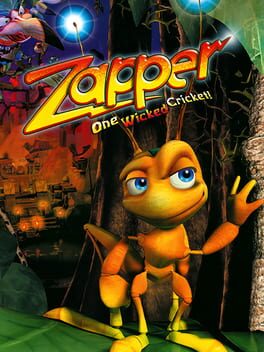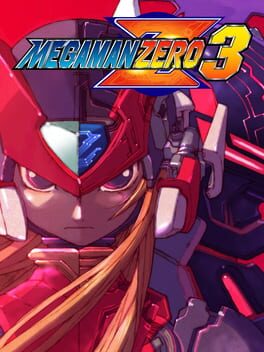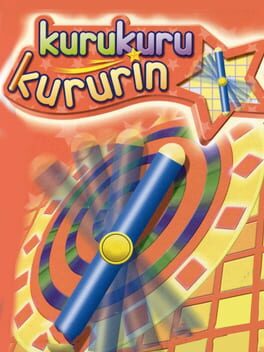Silverhand
BACKER
A very Okay follow up to Supraland, Six Inches Under doesn't do enough new to change your mind about the formula of these games but is a quick and comfy extension of the ideas from the original. Some aspects were streamlined, and the game overall is a good bit shorter, but I feel like something was lost along the way in terms of scale. That does seem to help with reducing backtracking, but I hope for the "full" sequel they go back to something closer to the first game, but with some of the improvements here. One of the main mechanical improvements is the combat, which still isn't anything special but is much less painful. The way in which that was streamlined though, combined with the shorter length, makes the progression feel like it hardly matters outside of key items. I definitely did less exploring and side quests here, and don't really regret that. The puzzles are still the highlight, and for the most part they're good here, but there's still the occasional time where you hit a wall and it really feels hard to figure out what was intended. The items are used for puzzles in clever ways, but it didn't feel like any of the new items were huge cool surprises that changed how I viewed the game world like in the first title. It feels like there's more of a story focus here too, at least compared to what I remember, but it's all very surface level commentary on social inequality, and most of the jokes didn't really land for me. Despite the small complaints, it was a fun time and I ran through the roughly 6 hour main story in 2 afternoons. I'm definitely down for this developer to keep making and refining these games, I'd try more of them.
2003
2006
This review contains spoilers
I don't like JRPGs. There are a handful of exceptions, but as a genre I find the design tropes boring if not straight up bad. The first half or so of Mother 3 had me convinced that it was different, and if it kept to that course it may have ended up as my favorite in the genre (or close to it). Unfortunately, the latter half leans hard into JRPG tropes and seems to miss the point on many things that I thought it was brilliant for doing in the first place. I've struggled with putting into words my issues with this genre of game, but finishing this Big and Important one that's been on my backlog forever seems like the best time to try and do it.
I think the biggest issue I have with this type of game is the balance of combat. Having a large amount of options in menu-based combat quickly gets overwhelming, so strategic input from the player is usually limited. In most JRPGs there's really no other type of skill involved, just patience for grinding. On the other hand, if the game is too easy then the combat feels like a chore, and I often find myself wishing games like this were just story-focused walking sims. Failing usually isn't fun, and just leads to repeating the same content, so it's a fine line to tread of staying engaging and not turning into a "mash A through combat" game, but also not being so difficult that becomes annoying, forces every player into a single broken strategy, or worst of all leads to grinding. Typically the best parts of these games are the boss fights, well crafted experiences where you get to see and hear something new, and at least in good cases a new unique strategy is needed/helpful for winning. Bear with me, because I can already hear the groans of people reading this, but Undertale is a great example of what I'm looking for out of an RPG. Unique combat experiences that aren't really focused on stats or gear, but more so showing you new ideas and then moving on to the next thing. I realize that I'm writing about playing Mother 3 for the first time in 2022, and many later games including Undertale took inspiration from it, but I want to talk about the ways in which it succeeds and fails at that in my experience.
Early on there are many cool ideas here for how to spice up combat, from the rhythm battle mechanic to the health counters. Enemies are varied and amusing, and the boss fights feel like tight, well-crafted experiences. Later on this falls apart somewhat, but for a while I was loving this. I think it succeeds in large part due to the structure of switching between character perspectives (which I also loved for the story, but I'll get to that later). This not only introduces you to new party members and mechanics often enough that they don't get stale, but these shorter, linear chapters allow the developers to keep a tight grasp on the player's state. The balance of JRPGs often feels like it's at odds with the near universally present XP systems and upgradable gear, and Mother 3 solves that for a good chunk of time by controlling what you're given access to without feeling restrictive. It also helps that each of these characters you play as has a unique theme and take on the mechanics of combat. These separate, smaller stories are intriguing both in narrative in gameplay, and seeing how they come together later is a great driving force for the first half of the game.
Unfortunately, this didn't last forever. The second half of the game (which I'm defining as after the timeskip at the beginning of Chapter 4, it's probably not actually half of the time the game takes but it's a clear dividing point in the game design and story) opens up with an explanation of a currency system. I was already disappointed, as I was enjoying the lack of one. Items before this point were kept simpler, and knowing exactly what you'd have access to surely helped with the balance. Adding currency and shops serves the narrative, but adds unnecessary complexity to the gameplay balance. I could see the argument that it being unnecessary and an annoyance even ties into the story's themes, but I think the game makes that point well enough without the gameplay ramifications. I'm sure it's easy when designing a game like this to just say "other games did it, right?", but Mother 3 demonstrates in its opening chapters that it understands how tightly designed a game can be without that. This idea underlines my thoughts through the rest of the game, "why did they change this after doing it so well earlier?" The rhythm combat and HP counter mechanic lose importance and start to feel dull. The former because there's too many enemies that you can't put to sleep to learn the rhythm or it's just not worth it to do so, and the many of the songs became too complicated for me to keep up more than a few beats. The counter mechanic becomes an annoyance with larger HP totals when you're often sitting there waiting on a heal to finish before letting the enemy attack, or you're trying to mash out commands before a party member dies but the textboxes take too long. You can buy weapon upgrades at shops, but when this is worth doing isn't very apparent until after the fact. Refighting bosses earlier in the game would skip some of their dialogue/cutscene on repeat attempts to speed it up, and at some point they just give up on doing this. Inventory management becomes a chore, and the Inventory Guy is never nearby when you need him. There were some bosses later in the game that I just had to grind for because even using the best strategy at my current level wasn't enough. The separation of save points and hot springs for healing makes little sense when there's no hot spring near a pre-boss save point, encouraging you to just die on your first attempt. There's so many things like this where I thought this game was better and it just falls backwards into the same problems I have with so many other games.
That's certainly not to say this is a bad game, I enjoyed my time with it a lot even in most of those later parts. It does have a ton of content to show you that's all very charming and funny, and I can totally see how this helped spawn the subgenre of CharmPGs, but it feels more genuine in a way that many of those don't. In addition to this charm of the style and writing, the music was a big driving force in my interest to play this, as well as my motivation to continue playing throughout. I don't have a whole lot to say about it other than it's hands down the best soundtrack on the GBA. There's also some cool divergences from the main gameplay, which even if they're hit (the lab section) or miss (underwater) I admire the attempt to mix it up and didn't have a better spot to mention that.
I largely have positive things to say about the story, but it does stumble in a couple of places. Moving away from the perspective shifts of the first half entirely is a mistake in my opinion. On top of enjoying it for the gameplay, I think it would have greatly benefitted the pacing to have some more of these sprinkled throughout the back half as a break from the full-party gameplay with the normal group of characters. Porky's introduction and importance to the story are also questionable. Most people playing this have probably played Earthbound, but I found it too tedious to stick with. I don't know much beyond Porky being an antagonist in that game as well, but taking this story on its own he's introduced too late (and mostly explained through an exposition dump) and just kind of distracts from the main narrative in my opinion. It would have been fine just leaving Fassad and the Masked Man as the main antagonists. I also wish there was more time spent in New Pork City, the last chapter of the game there is pretty rushed and that probably doesn't help with Porky feeling underdeveloped. There's also a story disconnect between the halves of the game with the focus on the Egg of Light, which is hardly used once it's obtained, and its importance only explained later in the exposition dump I mentioned. I also think Lucas as a main character is a little too bland and too much of a self-insert or blank slate character. I prefer main characters in RPGs that are well defined and let you roleplay as them, and there's really none of that with Lucas. There's also a lot of positives to the story as well though. I did love the perspective changing between chapters while that was going on and it was a great way to introduce the wide cast of characters. Even if this isn't kept up, bringing back characters that were out of the story for a while still benefits from those early sections. The variety in locations and scope of the story is impressive and fun. I mentioned above, but the writing is consistently charming and funny. The ending was also pretty well executed and emotionally touching, and the use of musical motifs tying into the story there was cool even if it was probably more notable at the time than it is today with many more games trying to do that.
While I've got a lot of smaller complaints and this game isn't as perfect as I thought it might be for a while, it's still one of the best experiences I've had with a JRPG. It was actually fun enough for me to finish, which I often don't end up doing with these. I was a bit sad when it was over, as this had become a regular before bedtime game for me and was very comfy to play an hour of at the end of the day. I hope I got my message across of what I think this and future games could do better, but over time I imagine my annoyances with this will fade and I'll be left with the positive memories of this experience with it.
I think the biggest issue I have with this type of game is the balance of combat. Having a large amount of options in menu-based combat quickly gets overwhelming, so strategic input from the player is usually limited. In most JRPGs there's really no other type of skill involved, just patience for grinding. On the other hand, if the game is too easy then the combat feels like a chore, and I often find myself wishing games like this were just story-focused walking sims. Failing usually isn't fun, and just leads to repeating the same content, so it's a fine line to tread of staying engaging and not turning into a "mash A through combat" game, but also not being so difficult that becomes annoying, forces every player into a single broken strategy, or worst of all leads to grinding. Typically the best parts of these games are the boss fights, well crafted experiences where you get to see and hear something new, and at least in good cases a new unique strategy is needed/helpful for winning. Bear with me, because I can already hear the groans of people reading this, but Undertale is a great example of what I'm looking for out of an RPG. Unique combat experiences that aren't really focused on stats or gear, but more so showing you new ideas and then moving on to the next thing. I realize that I'm writing about playing Mother 3 for the first time in 2022, and many later games including Undertale took inspiration from it, but I want to talk about the ways in which it succeeds and fails at that in my experience.
Early on there are many cool ideas here for how to spice up combat, from the rhythm battle mechanic to the health counters. Enemies are varied and amusing, and the boss fights feel like tight, well-crafted experiences. Later on this falls apart somewhat, but for a while I was loving this. I think it succeeds in large part due to the structure of switching between character perspectives (which I also loved for the story, but I'll get to that later). This not only introduces you to new party members and mechanics often enough that they don't get stale, but these shorter, linear chapters allow the developers to keep a tight grasp on the player's state. The balance of JRPGs often feels like it's at odds with the near universally present XP systems and upgradable gear, and Mother 3 solves that for a good chunk of time by controlling what you're given access to without feeling restrictive. It also helps that each of these characters you play as has a unique theme and take on the mechanics of combat. These separate, smaller stories are intriguing both in narrative in gameplay, and seeing how they come together later is a great driving force for the first half of the game.
Unfortunately, this didn't last forever. The second half of the game (which I'm defining as after the timeskip at the beginning of Chapter 4, it's probably not actually half of the time the game takes but it's a clear dividing point in the game design and story) opens up with an explanation of a currency system. I was already disappointed, as I was enjoying the lack of one. Items before this point were kept simpler, and knowing exactly what you'd have access to surely helped with the balance. Adding currency and shops serves the narrative, but adds unnecessary complexity to the gameplay balance. I could see the argument that it being unnecessary and an annoyance even ties into the story's themes, but I think the game makes that point well enough without the gameplay ramifications. I'm sure it's easy when designing a game like this to just say "other games did it, right?", but Mother 3 demonstrates in its opening chapters that it understands how tightly designed a game can be without that. This idea underlines my thoughts through the rest of the game, "why did they change this after doing it so well earlier?" The rhythm combat and HP counter mechanic lose importance and start to feel dull. The former because there's too many enemies that you can't put to sleep to learn the rhythm or it's just not worth it to do so, and the many of the songs became too complicated for me to keep up more than a few beats. The counter mechanic becomes an annoyance with larger HP totals when you're often sitting there waiting on a heal to finish before letting the enemy attack, or you're trying to mash out commands before a party member dies but the textboxes take too long. You can buy weapon upgrades at shops, but when this is worth doing isn't very apparent until after the fact. Refighting bosses earlier in the game would skip some of their dialogue/cutscene on repeat attempts to speed it up, and at some point they just give up on doing this. Inventory management becomes a chore, and the Inventory Guy is never nearby when you need him. There were some bosses later in the game that I just had to grind for because even using the best strategy at my current level wasn't enough. The separation of save points and hot springs for healing makes little sense when there's no hot spring near a pre-boss save point, encouraging you to just die on your first attempt. There's so many things like this where I thought this game was better and it just falls backwards into the same problems I have with so many other games.
That's certainly not to say this is a bad game, I enjoyed my time with it a lot even in most of those later parts. It does have a ton of content to show you that's all very charming and funny, and I can totally see how this helped spawn the subgenre of CharmPGs, but it feels more genuine in a way that many of those don't. In addition to this charm of the style and writing, the music was a big driving force in my interest to play this, as well as my motivation to continue playing throughout. I don't have a whole lot to say about it other than it's hands down the best soundtrack on the GBA. There's also some cool divergences from the main gameplay, which even if they're hit (the lab section) or miss (underwater) I admire the attempt to mix it up and didn't have a better spot to mention that.
I largely have positive things to say about the story, but it does stumble in a couple of places. Moving away from the perspective shifts of the first half entirely is a mistake in my opinion. On top of enjoying it for the gameplay, I think it would have greatly benefitted the pacing to have some more of these sprinkled throughout the back half as a break from the full-party gameplay with the normal group of characters. Porky's introduction and importance to the story are also questionable. Most people playing this have probably played Earthbound, but I found it too tedious to stick with. I don't know much beyond Porky being an antagonist in that game as well, but taking this story on its own he's introduced too late (and mostly explained through an exposition dump) and just kind of distracts from the main narrative in my opinion. It would have been fine just leaving Fassad and the Masked Man as the main antagonists. I also wish there was more time spent in New Pork City, the last chapter of the game there is pretty rushed and that probably doesn't help with Porky feeling underdeveloped. There's also a story disconnect between the halves of the game with the focus on the Egg of Light, which is hardly used once it's obtained, and its importance only explained later in the exposition dump I mentioned. I also think Lucas as a main character is a little too bland and too much of a self-insert or blank slate character. I prefer main characters in RPGs that are well defined and let you roleplay as them, and there's really none of that with Lucas. There's also a lot of positives to the story as well though. I did love the perspective changing between chapters while that was going on and it was a great way to introduce the wide cast of characters. Even if this isn't kept up, bringing back characters that were out of the story for a while still benefits from those early sections. The variety in locations and scope of the story is impressive and fun. I mentioned above, but the writing is consistently charming and funny. The ending was also pretty well executed and emotionally touching, and the use of musical motifs tying into the story there was cool even if it was probably more notable at the time than it is today with many more games trying to do that.
While I've got a lot of smaller complaints and this game isn't as perfect as I thought it might be for a while, it's still one of the best experiences I've had with a JRPG. It was actually fun enough for me to finish, which I often don't end up doing with these. I was a bit sad when it was over, as this had become a regular before bedtime game for me and was very comfy to play an hour of at the end of the day. I hope I got my message across of what I think this and future games could do better, but over time I imagine my annoyances with this will fade and I'll be left with the positive memories of this experience with it.
This is everything I'd hoped for out of a sequel to the first Max Payne. It feels similar enough while keeping all of the good and improving greatly on the bad. Few sequels hit the mark this well.
The main gameplay feels much better just from some minor changes. A little more weapon variety, not being forced into a vulnerable stand up animation after your dive, a better grenade/melee system, and the difficulty/health system being handled in a much more sane way. This game gets what Max Payne was going for with its difficulty, enemies die quickly and kill you quickly. For the most part bullet sponge bosses are gone, and normal enemies don't benefit from the insane adaptive difficulty of the first game. Max dies quickly, but not from one shot anymore, and painkillers are abundant rather than having a scarce handful hidden out of the way in each level. Exploration off the main path feels rewarded more now with extra painkillers and ammo in places that make sense, with the main paths through levels being a bit easier to make out. I did like the environment variety in the first game while still staying on theme, but that's still done better here and with better paced levels. The presentation is also much better, the graphics and sound are a notable step up while still being on the same engine. This is especially notable in the dream sequences, which are improved in gameplay as well, doing away with the poorly implemented platforming and dull mazes. My only real complaint here are the escort missions, some of which are an okay change of pace but the ally health system can feel unfair at points, and there's one mission in particular that's a standout low for the game. Overall though it was really fun to play, and while the story and tone of the first game was what kept me going, here I really got why people love the gameplay. I really wish that there was a way to play through the first game with these updated mechanics, hopefully the remake is good.
The story is just as cheesy as the first time around, but I'm impressed with how they kept that same tone that I loved while blending the comics with real time cutscenes and much more dialogue during the levels. The first game felt like an extreme case of story being separated from gameplay most of the time. You'd fight through waves of enemies in same-y environments for half an hour (even if they did change it up between levels), and then get a bit more of the story. Here there are way more important characters talking to you in the actual levels, or bits of background info that aren't exclusively told through cutscenes. It kept my attention way better and felt like the pacing was much smoother without detracting anything from the tone of its predecessor. The ending is a slight weak point I think, it didn't feel as climactic as the first game, and the final boss fight being mechanically similar but lesser in scale didn't help with that.
This is also a shorter game, and while the pacing is excellent and I definitely prefer this to it overstaying its welcome, I would've loved more here (or just a third Max Payne game by Remedy). Still, a very easy recommendation to anyone who enjoys shooters, this is the one that people talk about when they talk about Max Payne, and I honestly think people remember the first game as being more like this than it is. I remember liking the third game, and I'd like to revisit it now that I've played the first two to see how it holds up. Also curious how much they'll change with the remake, but I'm glad I played the originals regardless. Maybe just watch the cutscenes of the first game if you're checking these out yourself and skip straight to this one, it's a great time.
The main gameplay feels much better just from some minor changes. A little more weapon variety, not being forced into a vulnerable stand up animation after your dive, a better grenade/melee system, and the difficulty/health system being handled in a much more sane way. This game gets what Max Payne was going for with its difficulty, enemies die quickly and kill you quickly. For the most part bullet sponge bosses are gone, and normal enemies don't benefit from the insane adaptive difficulty of the first game. Max dies quickly, but not from one shot anymore, and painkillers are abundant rather than having a scarce handful hidden out of the way in each level. Exploration off the main path feels rewarded more now with extra painkillers and ammo in places that make sense, with the main paths through levels being a bit easier to make out. I did like the environment variety in the first game while still staying on theme, but that's still done better here and with better paced levels. The presentation is also much better, the graphics and sound are a notable step up while still being on the same engine. This is especially notable in the dream sequences, which are improved in gameplay as well, doing away with the poorly implemented platforming and dull mazes. My only real complaint here are the escort missions, some of which are an okay change of pace but the ally health system can feel unfair at points, and there's one mission in particular that's a standout low for the game. Overall though it was really fun to play, and while the story and tone of the first game was what kept me going, here I really got why people love the gameplay. I really wish that there was a way to play through the first game with these updated mechanics, hopefully the remake is good.
The story is just as cheesy as the first time around, but I'm impressed with how they kept that same tone that I loved while blending the comics with real time cutscenes and much more dialogue during the levels. The first game felt like an extreme case of story being separated from gameplay most of the time. You'd fight through waves of enemies in same-y environments for half an hour (even if they did change it up between levels), and then get a bit more of the story. Here there are way more important characters talking to you in the actual levels, or bits of background info that aren't exclusively told through cutscenes. It kept my attention way better and felt like the pacing was much smoother without detracting anything from the tone of its predecessor. The ending is a slight weak point I think, it didn't feel as climactic as the first game, and the final boss fight being mechanically similar but lesser in scale didn't help with that.
This is also a shorter game, and while the pacing is excellent and I definitely prefer this to it overstaying its welcome, I would've loved more here (or just a third Max Payne game by Remedy). Still, a very easy recommendation to anyone who enjoys shooters, this is the one that people talk about when they talk about Max Payne, and I honestly think people remember the first game as being more like this than it is. I remember liking the third game, and I'd like to revisit it now that I've played the first two to see how it holds up. Also curious how much they'll change with the remake, but I'm glad I played the originals regardless. Maybe just watch the cutscenes of the first game if you're checking these out yourself and skip straight to this one, it's a great time.
2001
Loved the style, the story was cheesy but fun (the comic book presentation was great), gameplay felt okay with the exception of the adaptive difficulty being dumb. The health system is really bad and the trial and error isn't fun even though I sometimes like that style of combat. The combination of feeling like you need to perfect clear a room to have good health for your next save rather than just trying to complete it normally, and having to wait through the lengthy death animation between tries for the adaptive difficulty to work at all make it tedious. I could see the flow here being much more like a Hotline Miami, for example, and the difficulty being much more fun in that case. Can definitely see the good ideas for the start of a series here but it's a bit rough around the edges now. I've already played 3 a while ago and enjoyed that more, have heard that 2 is the best one so I'm excited to see the improvements there.
Liked the style a surprising amount, especially the saturday morning cartoon styled cutscenes. The levels design is mostly pretty nice and I liked the way the hubs for each world were a level themselves and enjoyed the quick pace of the mostly short levels. The main problem here is the controls, and they're just awful. Really floaty jumps and maybe the worst double jump ever made, you slide off the edges of platforms all the time, and there's about a dozen different actions tied to the circle button, which you basically have to mash whenever you're near an interactable object to make sure it doesn't just ignore your input and kill you, but this also sometimes makes you snap to the wrong thing. This is all exacerbated by dying in one hit, and an obnoxious lives system. Still had enough fun to finish it, and it's a pretty quick game, but there's a lot here that I hope the sequels fix.
I'm obviously a bit late to the party here. There's a lot that's been said about Shadow of the Colossus, and it deserves a lot of the recognition it gets. However, there's also a lot of things that don't hold up very well playing it for the first time now. You can see its influence all over modern games, but that doesn't mean that going back to the source of some of those inspirations is necessarily fun. The core idea here is great, a boss rush with a puzzle slant to the boss design, and a beautiful open world to explore. Unfortunately both of those aspects kind of fell apart for me by the end.
The bosses start out very easy, and you can run through them comically fast. Difficulty ramps up later on, but not in a way that's very fun or engaging. Whenever I got stuck, it was due to a puzzle solution being obtuse, and whether I eventually figured it out, or it was one of the handful of times I ended up looking up how to do something, it almost never felt satisfying to figure out or to actually execute. The last two were especially egregious, and both took way too long to climb back up if you did the wrong thing. The only kind of mechanical difficulty comes from the poor controls, or falling off of a colossus and having to repeat a section, either due to running out of stamina or getting tired of holding the grip trigger. They seemingly decided that you should really feel like you're hanging on for your life by giving you hand pain through the controls. Also while you're on the colossus, it trying to shake you off often seems random or glitchy, and leads to a lot of just holding a direction and hoping it gives you a second to climb, or mashing the button trying to figure out when the opening for your attack is supposed to be. It looks nice, but the gameplay doesn't really line up with that experience. Beyond having to hold down a trigger for 90% of the game, this does a lot of other things with the controls that game devs have mostly learned just not to do anymore, even on the supposedly improved "modern" controls in the remake. The colossi and their environments are suitably impressive visually, and the scale of them is communicated very well. That at least was good enough to keep me going.
The struggles with the controls continue in the open world, where you have far and away the worst controlling horse in any video game and a camera more concerned with cinematic angles than letting you see where you're going. I can understand the idea behind wanting more weighty, realistic, and less responsive horse controls, but they went way too far with it here. If Agro is within 50 feet of even a slight bump in the terrain, much less narrow walls, he'll often refuse to move or go at a glacial pace, and turning feels like you're playing with over a second of input delay. Doing things on horseback like using your sword's guiding light or the bow is also a pain with the way the controls are laid out. The light showing you your next objective is an interesting idea I suppose, but combined with the way the world is laid out and how long it takes to traverse it, it ended up just being an especially annoying objective marker with a lot of trial and error of going down long narrow passages between mountains to find out a full minute or two later that it wasn't the way to go. The world looks nice, but you'll quickly realize there's not much to do or see here. I love exploration in games and am totally fine with it being mostly self-motivated, I definitely wouldn't expect this to be littered with side quests and collectibles like many modern open world games, but it just never really motivated me to explore here. There are collectibles, but they just never really caught my interest and I have no idea what they do. The map feels like just empty padding for the already short runtime.
I'm conflicted on the story, I think the simple setup is cool and worked well, but being given nothing over the course of the game that adds to it starts to feel repetitive, and being taken back to the hub feels like a missed opportunity to add basically anything here. Then at the end there's the big story dump, and I don't know that I really liked where it went. Maybe I would have been more okay with it if there was any kind of natural build up there, or hinting at what was happening, but it's just a long cutscene after the game is over. The pacing felt really off, and I would have been much more okay with the game just ending before any of that and leaving it up to interpretation more.
This review is pretty negative, but I really had an alright time overall. The game kept my attention and I finished it pretty quickly, it just has a lot of issues that I haven't seen talked about much, while its praises don't really need repeating by me. Still worth a try, if for nothing else, at least to see how important it is to gaming history.
The bosses start out very easy, and you can run through them comically fast. Difficulty ramps up later on, but not in a way that's very fun or engaging. Whenever I got stuck, it was due to a puzzle solution being obtuse, and whether I eventually figured it out, or it was one of the handful of times I ended up looking up how to do something, it almost never felt satisfying to figure out or to actually execute. The last two were especially egregious, and both took way too long to climb back up if you did the wrong thing. The only kind of mechanical difficulty comes from the poor controls, or falling off of a colossus and having to repeat a section, either due to running out of stamina or getting tired of holding the grip trigger. They seemingly decided that you should really feel like you're hanging on for your life by giving you hand pain through the controls. Also while you're on the colossus, it trying to shake you off often seems random or glitchy, and leads to a lot of just holding a direction and hoping it gives you a second to climb, or mashing the button trying to figure out when the opening for your attack is supposed to be. It looks nice, but the gameplay doesn't really line up with that experience. Beyond having to hold down a trigger for 90% of the game, this does a lot of other things with the controls that game devs have mostly learned just not to do anymore, even on the supposedly improved "modern" controls in the remake. The colossi and their environments are suitably impressive visually, and the scale of them is communicated very well. That at least was good enough to keep me going.
The struggles with the controls continue in the open world, where you have far and away the worst controlling horse in any video game and a camera more concerned with cinematic angles than letting you see where you're going. I can understand the idea behind wanting more weighty, realistic, and less responsive horse controls, but they went way too far with it here. If Agro is within 50 feet of even a slight bump in the terrain, much less narrow walls, he'll often refuse to move or go at a glacial pace, and turning feels like you're playing with over a second of input delay. Doing things on horseback like using your sword's guiding light or the bow is also a pain with the way the controls are laid out. The light showing you your next objective is an interesting idea I suppose, but combined with the way the world is laid out and how long it takes to traverse it, it ended up just being an especially annoying objective marker with a lot of trial and error of going down long narrow passages between mountains to find out a full minute or two later that it wasn't the way to go. The world looks nice, but you'll quickly realize there's not much to do or see here. I love exploration in games and am totally fine with it being mostly self-motivated, I definitely wouldn't expect this to be littered with side quests and collectibles like many modern open world games, but it just never really motivated me to explore here. There are collectibles, but they just never really caught my interest and I have no idea what they do. The map feels like just empty padding for the already short runtime.
I'm conflicted on the story, I think the simple setup is cool and worked well, but being given nothing over the course of the game that adds to it starts to feel repetitive, and being taken back to the hub feels like a missed opportunity to add basically anything here. Then at the end there's the big story dump, and I don't know that I really liked where it went. Maybe I would have been more okay with it if there was any kind of natural build up there, or hinting at what was happening, but it's just a long cutscene after the game is over. The pacing felt really off, and I would have been much more okay with the game just ending before any of that and leaving it up to interpretation more.
This review is pretty negative, but I really had an alright time overall. The game kept my attention and I finished it pretty quickly, it just has a lot of issues that I haven't seen talked about much, while its praises don't really need repeating by me. Still worth a try, if for nothing else, at least to see how important it is to gaming history.
This game by itself takes the bongos from a gimmick peripheral to something worth trying, which is very impressive. I remember trying it for about 5 minutes at a friend's house as a kid, thought it was hard to control, and passed it off as a gimmick. I bought some DK Bongos recently to play this, mostly thinking it would just be a funny bit and I could stream it for friends, but I was surprised to find that this is actually a really fun game.
It genuinely makes good use of the peripheral, and the controls are fine once you get used to them, maybe with the exception of claps being a little inconsistent (tapping the side of the bongos instead helped a lot). The levels mostly flow well, though the bird sections and swimming sections feel a bit worse. There's a good variety of environments, and the boss fights are shockingly fun and creative, for a while at least. My biggest complaint with the game is that they introduce all of these awesome and varied bosses early on, and then end up reusing variants of them too much throughout the game. Still really cool though and more than I expected out of this.
The scoring requirements are a little strict, though I do like that they show you videos of how to better keep up your combo after completing a level. I just got the normal ending for this playthrough but could definitely see myself going back for the post-game content in the future, as sadly there's not much else to play on the bongos. Very happy I got to try this, I'm a big fan of the Donkey Kong series and didn't even know what I was missing out on with this one.
It genuinely makes good use of the peripheral, and the controls are fine once you get used to them, maybe with the exception of claps being a little inconsistent (tapping the side of the bongos instead helped a lot). The levels mostly flow well, though the bird sections and swimming sections feel a bit worse. There's a good variety of environments, and the boss fights are shockingly fun and creative, for a while at least. My biggest complaint with the game is that they introduce all of these awesome and varied bosses early on, and then end up reusing variants of them too much throughout the game. Still really cool though and more than I expected out of this.
The scoring requirements are a little strict, though I do like that they show you videos of how to better keep up your combo after completing a level. I just got the normal ending for this playthrough but could definitely see myself going back for the post-game content in the future, as sadly there's not much else to play on the bongos. Very happy I got to try this, I'm a big fan of the Donkey Kong series and didn't even know what I was missing out on with this one.
2003
In recent memory this is the most positive I've felt overall about a game where I strongly dislike the core gameplay. The stealth and combat are incredibly basic and feel forced in, and I'm sure they were used as selling points for the game back when it came out.
This could be the poster child for bad stealth segments. Basic enemy patrol patterns, vision cones that feel very inconsistent in when they catch you, very basic and boring stealth gadgets, and the game's already poor camera controls become so much worse in stealth sections for whatever reason. The worst are rooms that feel like you have to stealth kill your way through but there's basically no way to kill without alerting everyone, setting off the alarm, hiding, and waiting for the rest of the enemies to give up on searching for you 5 seconds later and reset. The stealth really doesn't make up that much of the game, fortunately, but as a big selling point for the game or a genre it tries to be defined by it fails miserably.
The on-foot combat is used even less, and it's less annoying because you can mostly just mash through it, but it's very shallow. This isn't helped by health and healing consumables being meaningless and just resetting at the start of a room whenever you die. It might be annoying if that wasn't the case and the rest stayed the same, but it's still pretty weak. The ship combat and boss fights are a bit better, but still nothing to write home about.
Before I get to more positive things to say, I want to note that the level design is really lacking here. They're clearly trying to mimic Zelda dungeons (among other inspirations from that series), but the level design felt notably bad at many points. I'd like to think I notice when level design excels more than most, but I rarely complain about it when it meets the baseline for good of feeling "invisible". That feeling was broken a lot here, with backtracking through empty zones with nothing to do where other games would loop around to the start, and very poor signposting of where to go with splitting paths where there's really nothing to do in all but one direction most of the time. The levels are also inscrutable to get around during some of those backtracking segments, there's a map that's usually available pretty early on in each "dungeon" and your main path through is pretty linear, but something about them just feels difficult and maze-like to navigate. I'd find myself checking the map far too often, and still being kind of confused on where to go.
All of the above complains largely just apply to the game's dungeons, and despite all of that I sort of wish there were more of them, because the game feels over a little too soon. There's only four main dungeons, with one of them being essentially a tutorial, although the last one is pretty great to end on. Almost everything around those is really cool, and even if there's some other small problems as well the game is overflowing with charm and original designs that make the world feel alive. I'm positive that kid-me would have fallen in love with this game if I'd played it back then, because it does such an excellent job of making the world feel bigger and more alive than it actually is. The characters feel cool and interesting even if their writing is pretty flat, the areas feel like a huge open world with a lot of possibilities even if it doesn't actually take that much time to explore everything, and the side content is impressively varied and fun.
The minigames were more fun to me than the core gameplay, many of them revolving around your hovercraft. There's races that are surprisingly fun, as well as chase sequences. In addition to a couple of other games you can play with side characters, and some secret mini-dungeons in the city, it's really not that impressive of a list writing it out but it feels fun and varied, and a nice break from the core content of the game. Exploring to find this side content is a lot of what makes it enjoyable. Even if both the on-foot section of the main city and the overworld are fairly small, they tie into that feeling I talked about of a big and living world, and they open up over the course of the game in a fun way. I also quite enjoyed the camera aspect of the game, which I don't really know where I should mention. Recognizing if you'd seen a creature before, and finding a good angle to snap a pic of it stayed fun throughout the game. It also ties into the missions pretty well at points where you have to sneak around guards to take pictures of what the baddies are up to, which I wish there was a bit more of compared to the traditional stealth.
The story really isn't anything special, but I cared enough to see it through just on the basis of how cool the characters and world are (with the exception of Double H, fuck that guy). Seeing the citizens not-so-slowly join your cause was a really neat idea, even if the pacing of it is a bit abrupt. The ending was a little out of nowhere but was executed fairly well overall, it was definitely setting up for a sequel we all know at this point is never coming unfortunately. I also still have no idea what the title is supposed to be talking about, there's really no moral ambiguity to be found here.
Despite a lot of shortcomings and rough edges in the individual parts, I think Beyond Good & Evil really succeeded overall at what it set out to do. It failed at a lot of the smaller gameplay things that Zelda games do well, but it succeeded in making a compelling world that players want to explore, similar to those games but also completely in its own way. This should have led to a full series of games that could further explore the parts of this that work well and polish up the rest, but sadly we don't live in that world.
This could be the poster child for bad stealth segments. Basic enemy patrol patterns, vision cones that feel very inconsistent in when they catch you, very basic and boring stealth gadgets, and the game's already poor camera controls become so much worse in stealth sections for whatever reason. The worst are rooms that feel like you have to stealth kill your way through but there's basically no way to kill without alerting everyone, setting off the alarm, hiding, and waiting for the rest of the enemies to give up on searching for you 5 seconds later and reset. The stealth really doesn't make up that much of the game, fortunately, but as a big selling point for the game or a genre it tries to be defined by it fails miserably.
The on-foot combat is used even less, and it's less annoying because you can mostly just mash through it, but it's very shallow. This isn't helped by health and healing consumables being meaningless and just resetting at the start of a room whenever you die. It might be annoying if that wasn't the case and the rest stayed the same, but it's still pretty weak. The ship combat and boss fights are a bit better, but still nothing to write home about.
Before I get to more positive things to say, I want to note that the level design is really lacking here. They're clearly trying to mimic Zelda dungeons (among other inspirations from that series), but the level design felt notably bad at many points. I'd like to think I notice when level design excels more than most, but I rarely complain about it when it meets the baseline for good of feeling "invisible". That feeling was broken a lot here, with backtracking through empty zones with nothing to do where other games would loop around to the start, and very poor signposting of where to go with splitting paths where there's really nothing to do in all but one direction most of the time. The levels are also inscrutable to get around during some of those backtracking segments, there's a map that's usually available pretty early on in each "dungeon" and your main path through is pretty linear, but something about them just feels difficult and maze-like to navigate. I'd find myself checking the map far too often, and still being kind of confused on where to go.
All of the above complains largely just apply to the game's dungeons, and despite all of that I sort of wish there were more of them, because the game feels over a little too soon. There's only four main dungeons, with one of them being essentially a tutorial, although the last one is pretty great to end on. Almost everything around those is really cool, and even if there's some other small problems as well the game is overflowing with charm and original designs that make the world feel alive. I'm positive that kid-me would have fallen in love with this game if I'd played it back then, because it does such an excellent job of making the world feel bigger and more alive than it actually is. The characters feel cool and interesting even if their writing is pretty flat, the areas feel like a huge open world with a lot of possibilities even if it doesn't actually take that much time to explore everything, and the side content is impressively varied and fun.
The minigames were more fun to me than the core gameplay, many of them revolving around your hovercraft. There's races that are surprisingly fun, as well as chase sequences. In addition to a couple of other games you can play with side characters, and some secret mini-dungeons in the city, it's really not that impressive of a list writing it out but it feels fun and varied, and a nice break from the core content of the game. Exploring to find this side content is a lot of what makes it enjoyable. Even if both the on-foot section of the main city and the overworld are fairly small, they tie into that feeling I talked about of a big and living world, and they open up over the course of the game in a fun way. I also quite enjoyed the camera aspect of the game, which I don't really know where I should mention. Recognizing if you'd seen a creature before, and finding a good angle to snap a pic of it stayed fun throughout the game. It also ties into the missions pretty well at points where you have to sneak around guards to take pictures of what the baddies are up to, which I wish there was a bit more of compared to the traditional stealth.
The story really isn't anything special, but I cared enough to see it through just on the basis of how cool the characters and world are (with the exception of Double H, fuck that guy). Seeing the citizens not-so-slowly join your cause was a really neat idea, even if the pacing of it is a bit abrupt. The ending was a little out of nowhere but was executed fairly well overall, it was definitely setting up for a sequel we all know at this point is never coming unfortunately. I also still have no idea what the title is supposed to be talking about, there's really no moral ambiguity to be found here.
Despite a lot of shortcomings and rough edges in the individual parts, I think Beyond Good & Evil really succeeded overall at what it set out to do. It failed at a lot of the smaller gameplay things that Zelda games do well, but it succeeded in making a compelling world that players want to explore, similar to those games but also completely in its own way. This should have led to a full series of games that could further explore the parts of this that work well and polish up the rest, but sadly we don't live in that world.
2006
This is a very weird game to try and rate my experience with. I started a couple of days ago with the PS2 version, and got pretty far in before running into a stage that was just impossible. I thought at first I was just bad at the game and it was a large difficulty spike, then got more frustrated at the inconsistencies in the mechanics, then started looking into if there was something else going on. Turns out there was a glitch that I'm fairly sure was caused by the emulator, though it may just be an issue with the game's input processing. I spent hours bashing my head against that stage, much longer than the rest of the game combined, and in most cases would have just dropped the game.
Gitaroo Man, however, stuck in my head. The style and music here is something really special, it feels almost like an unofficial FLCL video game. Not just with the similarities in the music, but also in the story, as silly as it is here. It's a special kind of nostalgic feeling for growing up that this game (and that show) captures really well, and that made me come back and keep trying to beat it, as infuriating as the gameplay was for most of my playtime.
After figuring out that the bug I ran into was causing me to get way less health and do way less damage than videos I was watching of other people playing the game, I eventually tried playing through it again on an earlier version of PCSX2, which also didn't work (what a piece of shit emulator). Then finally tried the PSP port and beat the game in one sitting. There's a lot here that alleviates my problems with the original. There's a visual indicator for how close you are to losing your lock-on with the track, and timings are more lenient across the board. It's not as far as I'd like compared to the things modern rhythm games have learned about game feel, but it's much more playable. It unfortunately comes with the downside of worse graphics and framerate, and being changed to 16:9 for the PSP's screen which unfortunately really does not work well with how this game was designed. It's still a superior version overall, but I wish there was a definitive way to play this game I could point to.
I'm very conflicted on this overall, starting out I would have probably rated this higher, and the ending was pretty cool and worth playing through again to see. A lot of my time with the game was very frustrating though, and it's hard to say how much of that blame lies with the game itself. I will say that it's maybe too short, and some of the songs not hitting as hard for others is a notable negative for a game this length even if some of them are fantastic. Even with all that said, it's still an easy recommendation for how unique it is.
Gitaroo Man, however, stuck in my head. The style and music here is something really special, it feels almost like an unofficial FLCL video game. Not just with the similarities in the music, but also in the story, as silly as it is here. It's a special kind of nostalgic feeling for growing up that this game (and that show) captures really well, and that made me come back and keep trying to beat it, as infuriating as the gameplay was for most of my playtime.
After figuring out that the bug I ran into was causing me to get way less health and do way less damage than videos I was watching of other people playing the game, I eventually tried playing through it again on an earlier version of PCSX2, which also didn't work (what a piece of shit emulator). Then finally tried the PSP port and beat the game in one sitting. There's a lot here that alleviates my problems with the original. There's a visual indicator for how close you are to losing your lock-on with the track, and timings are more lenient across the board. It's not as far as I'd like compared to the things modern rhythm games have learned about game feel, but it's much more playable. It unfortunately comes with the downside of worse graphics and framerate, and being changed to 16:9 for the PSP's screen which unfortunately really does not work well with how this game was designed. It's still a superior version overall, but I wish there was a definitive way to play this game I could point to.
I'm very conflicted on this overall, starting out I would have probably rated this higher, and the ending was pretty cool and worth playing through again to see. A lot of my time with the game was very frustrating though, and it's hard to say how much of that blame lies with the game itself. I will say that it's maybe too short, and some of the songs not hitting as hard for others is a notable negative for a game this length even if some of them are fantastic. Even with all that said, it's still an easy recommendation for how unique it is.
An unofficial sequel to Frogger 2 by the devs of that game, Zapper is a fun and short... platformer? Frogger-like? Something along those lines. Some creative level themes, pretty tight controls (not exactly helped by playing on a gamecube controller), and some good music that you can jam out to with the dedicated antennae movement thumbstick (which serves no gameplay purpose, it's sick). My main complaint is with eggs, the main collectible, sometimes being hidden inside crates or other breakable objects, causing you to have to sometimes backtrack through a level to get them unless you're very meticulous with the locate button. There were also a few times where more natural looking platforming areas that don't adhere to the grid made it confusing where you're supposed to go or if you could make a jump. Also while the music is good most of the time, there are a handful of levels where it's replaced by barely noticeable ambient music. It feels like they ran out of budget for that partway through or something, which would fit with the game overall as it's very short. Still a fun time overall though, an easy recommendation to fans of Frogger 2, and if you haven't played that game you should go check it out as well.
2004
This is my entry to the Zero series, and from both the style of gameplay and the praise this has gotten it felt like something I should like. Unfortunately it started out mediocre and only went downhill from there. I'll mostly focus on the gameplay here and why I think that doesn't work, but I'll briefly mention some other aspects of the game. The story is fucking abysmal, and I get that jumping in at the third game I'm going to miss some stuff, but I felt like it really wasn't much of that causing me to dislike it but just amateur edgelord writing and flat trope-like characters. The visuals are pretty solid, though marred somewhat by the extremely zoomed in camera. I get that it's a GBA game, but it still felt like a bit too much. The music is alright at times, but some tracks are pretty grating, and I've heard much better from GBA games.
The main gameplay loop is classic Mega Man, except the stages are for the most part much easier, and the boss fights are meant to be harder and more intricate. This along with expanded movement and a bigger focus on melee weapons seems like something I'd enjoy a lot, but I ended up hating the combat by the end of the game. Early on a big problem is that your weapons aren't very effective without charging them, particularly vs bosses when you really want the knockback/stun from fully charged attacks. This leads to the optimal strategy being to hold down both of your attack buttons all the time while also moving, jumping, and dashing. Even on controllers much more comfortable than the original GBA, this is very rough on the hands. You can get a power up a bit into the game that automatically charges your weapons, but this is easy to miss and even when you have it it takes up an upgrade spot that could otherwise be used for other abilities for what feels like an essential feature.
Kind of similar to other Mega Man titles, the difficulty curve is also very strange. It starts out very difficult, then gets easier as you go except for some absurdly large spikes in difficulty at the mid point and end of the game. I should also note here that I played with the optional checkpoints in the newer release, without which this just seems insanely tedious to complete. Even with them, the time it takes after dying before you get back into a boss fight is needlessly long and adds a lot to the frustration of the more difficult parts of the game. The bosses aim to be more difficult through more complex movement and patterns, which sometimes works but often doesn't. I get that people have mastered these games and done no damage runs, but it still feels very unfair for a first playthrough when a boss's movement is unpredictable and unreactable and you get cornered in a very small arena. I feel like better air movement would help a lot with this, but your dash is limited to use on the ground. You can get some more distance by dashing then doing a wall jump, but that's awkward and can take too long to dodge some things mid-boss fight. You also do get a double jump pretty late in the game, which helps a lot, but like I said it's pretty late. With how little health you have, and how different the boss patterns can be from attempt to attempt, I felt like many of my victories weren't satisfying but felt like I just finally got lucky with an easy pattern. I'm no stranger to difficult boss-rush type games, but this still felt like a very un-fun kind of difficulty.
Once you get past the first handful of bosses, the game mostly gets much easier. You start to breeze through the stages with your upgraded abilities, but you'll notice that many of the enemies are reused and once you have all the elements unlocked and find a boss's weakness the normal ones are kind of a pushover. The only time the normal parts of the stage are challenging at all aren't very fun either, they're either easy to run through in a single attempt or they're in the handful littered with one hit kill spikes and crushing moving blocks. The spikes are especially egregious with the overly-zoomed-in camera I mentioned before. The biggest spike in difficulty though is at the final level. After doing a typical boss rush through repeats of the entire game (ugh), the final boss was easily my least favorite part. There are three phases, the first is fairly easy but the latter two are totally new and are difficult to learn and for each attempt you have to play from the beginning of the fight again, and with no healing between phases. The third phase in particular was pretty awful, with a wider arena that the camera couldn't fit, you take a lot of offscreen damage or get cornered by the boss's quick movement that you can't see the start of. There's also very few opportunities to safely get damage in. All 3 phases of this boss have more health than a typical boss in the game, and it overall was a huge slog that I felt more relieved than accomplished to be done with.
Overall the concept for this game could be cool, but it desperately needs some quality of life changes to the camera and controls, and some rethinking on how the bosses are made difficult. As people somehow hold this up as the pinnacle of the series, I don't have much hope for any of the others and doubt I'll try them.
The main gameplay loop is classic Mega Man, except the stages are for the most part much easier, and the boss fights are meant to be harder and more intricate. This along with expanded movement and a bigger focus on melee weapons seems like something I'd enjoy a lot, but I ended up hating the combat by the end of the game. Early on a big problem is that your weapons aren't very effective without charging them, particularly vs bosses when you really want the knockback/stun from fully charged attacks. This leads to the optimal strategy being to hold down both of your attack buttons all the time while also moving, jumping, and dashing. Even on controllers much more comfortable than the original GBA, this is very rough on the hands. You can get a power up a bit into the game that automatically charges your weapons, but this is easy to miss and even when you have it it takes up an upgrade spot that could otherwise be used for other abilities for what feels like an essential feature.
Kind of similar to other Mega Man titles, the difficulty curve is also very strange. It starts out very difficult, then gets easier as you go except for some absurdly large spikes in difficulty at the mid point and end of the game. I should also note here that I played with the optional checkpoints in the newer release, without which this just seems insanely tedious to complete. Even with them, the time it takes after dying before you get back into a boss fight is needlessly long and adds a lot to the frustration of the more difficult parts of the game. The bosses aim to be more difficult through more complex movement and patterns, which sometimes works but often doesn't. I get that people have mastered these games and done no damage runs, but it still feels very unfair for a first playthrough when a boss's movement is unpredictable and unreactable and you get cornered in a very small arena. I feel like better air movement would help a lot with this, but your dash is limited to use on the ground. You can get some more distance by dashing then doing a wall jump, but that's awkward and can take too long to dodge some things mid-boss fight. You also do get a double jump pretty late in the game, which helps a lot, but like I said it's pretty late. With how little health you have, and how different the boss patterns can be from attempt to attempt, I felt like many of my victories weren't satisfying but felt like I just finally got lucky with an easy pattern. I'm no stranger to difficult boss-rush type games, but this still felt like a very un-fun kind of difficulty.
Once you get past the first handful of bosses, the game mostly gets much easier. You start to breeze through the stages with your upgraded abilities, but you'll notice that many of the enemies are reused and once you have all the elements unlocked and find a boss's weakness the normal ones are kind of a pushover. The only time the normal parts of the stage are challenging at all aren't very fun either, they're either easy to run through in a single attempt or they're in the handful littered with one hit kill spikes and crushing moving blocks. The spikes are especially egregious with the overly-zoomed-in camera I mentioned before. The biggest spike in difficulty though is at the final level. After doing a typical boss rush through repeats of the entire game (ugh), the final boss was easily my least favorite part. There are three phases, the first is fairly easy but the latter two are totally new and are difficult to learn and for each attempt you have to play from the beginning of the fight again, and with no healing between phases. The third phase in particular was pretty awful, with a wider arena that the camera couldn't fit, you take a lot of offscreen damage or get cornered by the boss's quick movement that you can't see the start of. There's also very few opportunities to safely get damage in. All 3 phases of this boss have more health than a typical boss in the game, and it overall was a huge slog that I felt more relieved than accomplished to be done with.
Overall the concept for this game could be cool, but it desperately needs some quality of life changes to the camera and controls, and some rethinking on how the bosses are made difficult. As people somehow hold this up as the pinnacle of the series, I don't have much hope for any of the others and doubt I'll try them.
2001
Fun little game with a unique concept. Feels like something that would be an indie game these days but is neat to see in a game this old. The controls are a bit awkward being dpad-based and the levels vary a lot in length and quality. I'm interested to try the sequels at some point to see if they improve on the idea, because it's a solid foundation.
